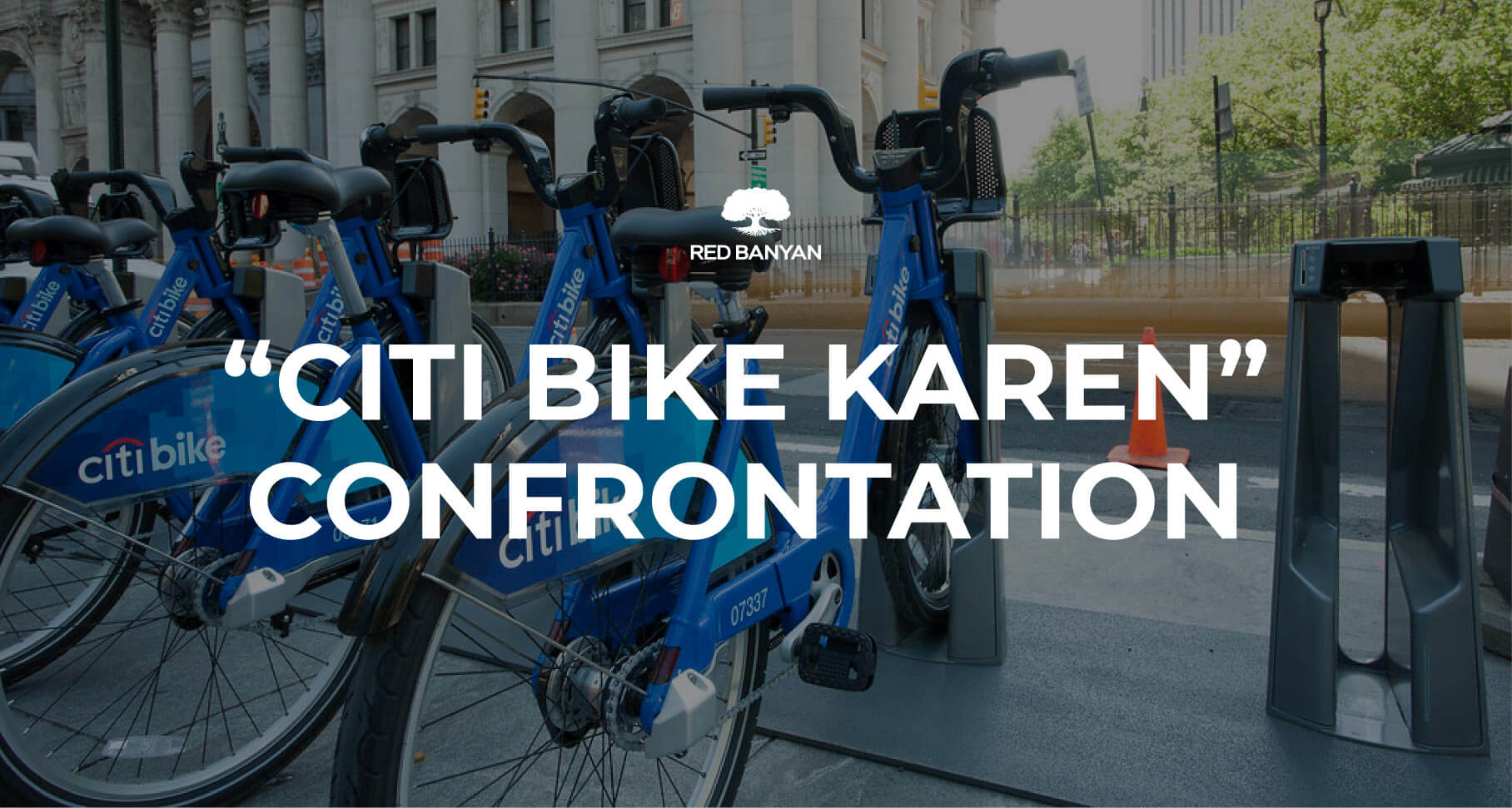“Citi Bike Karen” Confrontation Shows Grave Danger of the Cancel Culture Curse
June 13, 2023 | Category: Blog, Cancel Culture, Crisis PR, News

By Evan Nierman
Sarah Comrie was trying to pull a rented bike out of a rack in New York when several Black teenagers crowded around her and began arguing that the rental was theirs. Within hours, the White hospital worker’s life devolved into chaos after someone shared a video clip of the incident on social media dubbing her a racist and nicknaming her “Citi Bike Karen.”
An online mob immediately launched an attack.
It is the latest in a series of nearly identical cancel culture scenarios that have torn apart the lives of regular citizens. In this instance, the facts originally appeared clear: a White woman was filmed refusing to give up a bicycle to a Black teen. When challenged, she shouted for help, briefly broke down in tears, and then eventually stepped away.
But in the aftermath, it seems that the video did not tell the whole story. But Sarah never got the chance to plead her case before a tidal wave of cancel culture condemnation forever changed her life before the facts could be explored.
Since the May 13th incident, over 35 million people have viewed the 90-second video clip. It did not take long for online sleuths to identify her by name and the hospital where she worked to place Sarah on administrative leave. She and her unborn child both were targeted by haters whose vicious comments continue to pile up online. Sarah has been forced to go into hiding after receiving multitudes of death threats and attempts to track her down to bully, intimidate, harass, and potentially even assault her.
Unfortunately, like most cases of cancel culture, there is much more to the story than the original video showcasing an “offense” would lead you to believe. During cancel culture attacks, online mobs typically rally around minor incidents that are further amplified every time the information is shared on social media. Cancel culture typically vilifies targets for minor offenses, frequently based on innuendo or half-truths. Made possible by the Internet and powered by social media, cancel culture stokes the ire of online haters who subsequently carry out their self-directed campaigns of punishment and vengeance like a modern-day lynch mob.
In Sarah’s case, the Black teens were instantly labeled victims and Sarah was portrayed as an entitled and bigoted White woman. The media and observers online immediately latched onto the story and amplified the racism angle without bothering to dig deeper and find out the facts.
Since then, Sarah has been forced to hire an attorney. He has declared that she has receipts proving that she was correct to lay claim to the bicycle, having rented it before the group of men stepped in to prevent her from riding away.
At this point, we don’t know the full story, but it appears likely that more information will soon become available. Therein lies the problem with cancel culture: stories frequently spin out of control that destroy people’s reputations, endanger their safety and affect their lives and livelihoods. We have seen other versions of this very story before, and typically they do not end well.
What makes Sarah’s case different from many is that she is proactively employing some of the recommended strategies for people who find themselves unfairly under assault by a cancel culture mob.
Sarah sought help defending herself and appears to have a very competent attorney advocating on her behalf. With his assistance, Sarah has moved quickly to challenge the prevailing narrative that took hold. If her claims turn out to be true, then this would not be the first time that a victim was unfairly smeared as a perpetrator. We don’t yet have all the facts, which is precisely why the media and the public should reserve judgment until we fully understand what transpired that day.
Sarah’s employer should also not rush to terminate her, but instead give her a fair opportunity to present the facts of what happened. All too often the victims of cancel culture do not move quickly enough to react, and by the time they muster up the courage or strength to combat false allegations, it is already too late and their reputations and livelihoods have been permanently harmed.
This situation is a definitive moment in the annals of cancel culture. If the public reserves judgment and her employer takes time to grant her due process, then it may end up watershed moment helping turning the tide against cancel culture.
This scenario can prove to be a teachable moment that highlights the dangers of rushing to conclusions without fully examining both sides of a story. Whatever happens, the saga of Citi Bike Karen should be a warning to every citizen: if we allow cancel culture to continue then every single one of us could find ourselves being destroyed by it.
Evan Nierman is Founder and CEO of crisis PR firm Red Banyan and co-author of the book: “The Cancel Culture Curse: From Rage to Redemption in a World Gone Mad.”

